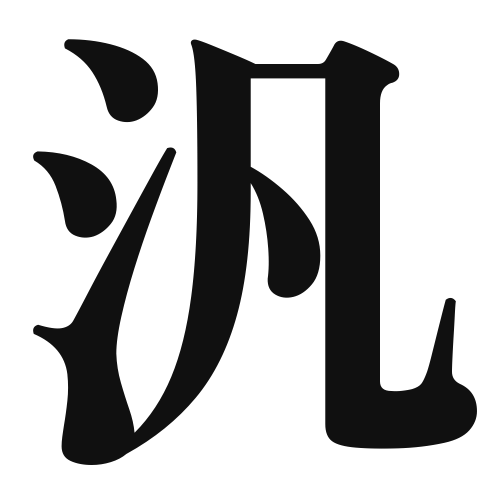1. Overview of Meaning
The kanji “汎” (han) generally means “broad,” “wide,” or “extensive.” It conveys the idea of something that encompasses a large area or range.
2. Formation and Radical
Formation of the Kanji: The kanji “汎” is a compound character (会意文字) that combines elements to convey its meaning. It consists of the water radical (氵) on the left, which relates to fluidity or breadth, and the character “半” (han) on the right, which means “half.” Together, they suggest the idea of something that spreads out like water.
Radical: The radical of “汎” is the water radical (氵), indicating its connection to fluidity and expansiveness.
3. Examples of Usage
Common Words and Phrases: “汎用” (hanyou) meaning “versatile” or “general-purpose,” and “汎発” (hanpatsu) meaning “widespread.”
Example Sentence in Daily Conversation: “このソフトウェアは汎用性が高いです。” (Kono sofutowea wa hanyousei ga takai desu.) – “This software is highly versatile.”
4. Synonyms and Antonyms
Similar Kanji: “広” (hiro) meaning “wide” or “broad,” but it often refers to physical space rather than the abstract concept of breadth that “汎” conveys.
Opposite Kanji: “狭” (se) meaning “narrow,” which represents the opposite of broadness or expansiveness.
5. Cultural and Historical Background
Connection to Japanese Culture: The concept of “汎” is often associated with the idea of inclusiveness and versatility in various aspects of Japanese culture, such as art and philosophy.
Proverbs and Idioms: While there may not be specific proverbs that use “汎,” the idea of broadness is often reflected in sayings that emphasize adaptability and versatility in life.
